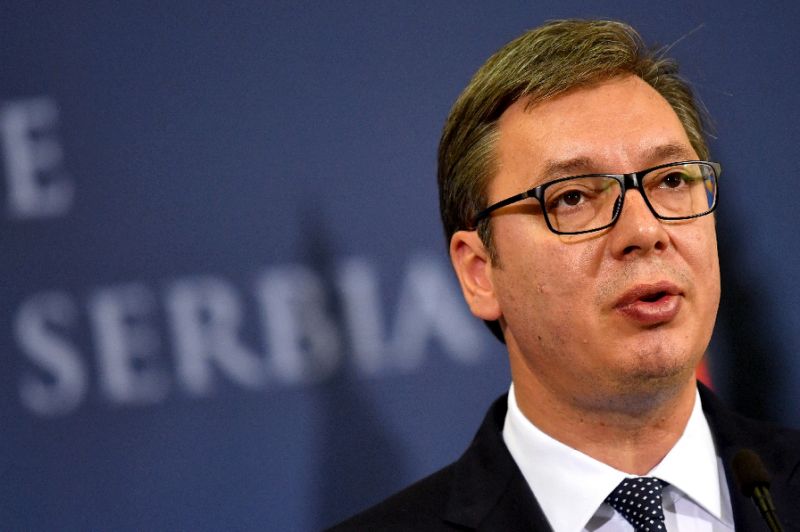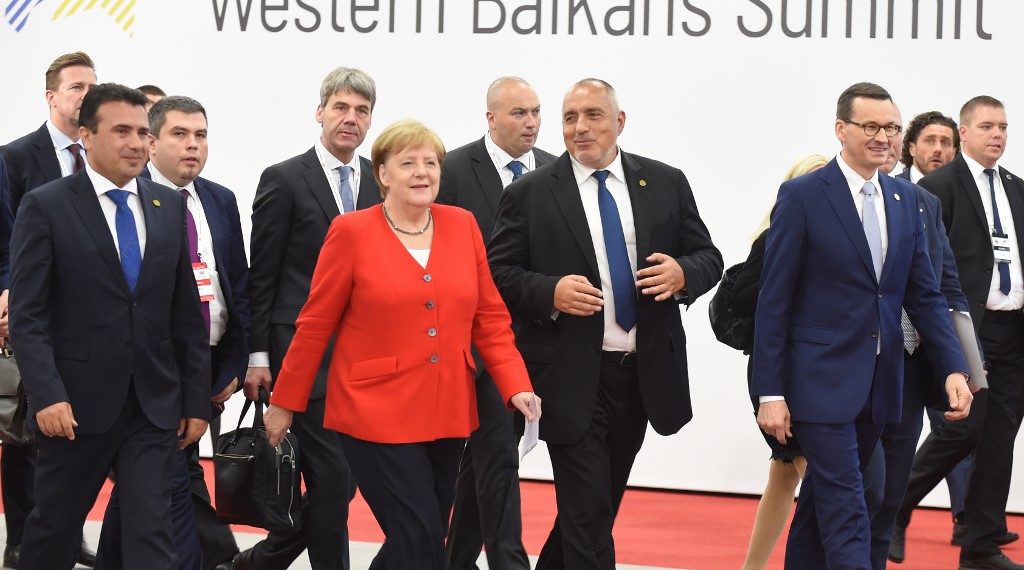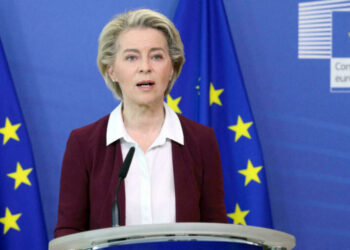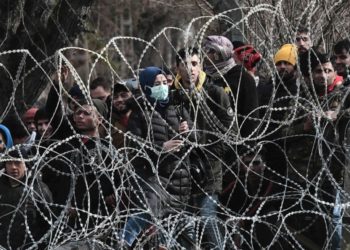If words spoke louder than actions, the Balkans would be confident of joining the European Union one day. Alas, the assurances given by E.U. officials in Poland last week that enlargement of the union is a “top priority” ignores the inescapable reality that the E.U. is in no position to expand.
Certainly, there is a powerful case for enlarging the E.U. into a region where the mismatch of peoples and borders is a perennial source of instability. By incorporating a set of fragile, multiethnic states into a larger political structure where borders do not matter, divided nations like Serbs and Albanians can effectively be united, as they once were in old Yugoslavia.
For this reason, the E.U. last decade offered the Balkans a basic compact: abandon your plans to create nation-states, make peace with your neighbors, knuckle down to reform, and eventually you will get to join the E.U., with all the benefits this entails – money, freedom, respectability, and so on.
By and large, the offer was accepted. Even in Serbia, which for years was run by nationalist hardliners, voters eventually elected a government which is willing to recognize the Albanian-populated breakaway state of Kosovo in return for the chance of E.U. membership.
EU Survival over Enlargement
However, events then intervened, specifically the financial shock of 2008, which morphed into an economic crisis and subsequently a fully-fledged political crisis that paralyzed E.U. institutions and caused an anti-establishment backlash.
With the process of integration barely off the ground, the E.U. has been forced to withdraw its earlier offer of membership to the Balkans, as political leaders in countries such as France, the Netherlands, and Denmark prioritize the survival of the E.U. over its enlargement to the east.
Their immediate concern is to avoid giving ammunition to Eurosceptic parties which channel the popular conception of the Balkans as a haven of crime, illegal migration, and radical Islam, that might dismantle the E.U. if they ever came to power. Longer term, if incorporating a set of poor and troubled Balkan states stands to weaken an already fragile E.U. – as France’s Emmanuel Macron believes – then it follows that enlargement cannot be allowed to happen.
Against this backdrop, it came as no surprise that European leaders last month (again) rejected a recommendation by E.U. officials to open negotiations on membership with Albania and North Macedonia. In typical Brussels fashion, leaders did not deliver a categorical “no,” agreeing instead to revisit the question in October. But the message was clear: unless and until the E.U. overcomes its multiple internal problems – something for which there is no imminent prospect – the Balkans will not join. So, where does that leave the region?
European Integration and Nationalism
If integration was the fix for the problems arising from a mismatch of peoples and borders, then the absence of integration means there is no fix. And that, in turn, means that local political elites in the Balkans, who are heavily invested in a failed policy of European integration, will instead embrace a dormant nationalism as the means of maintaining their legitimacy.
In fact, this is less a prognosis of the future than a description of an emerging reality. As Albania’s hopes of joining the E.U. fade into oblivion, its government is already taking steps to unite the country with neighboring Kosovo, whose best chance of ending its state of legal limbo is to merge with the recognized state of Albania.
This is changing the political calculus in Belgrade where a government that is starting to realize Serbia will never join the E.U. has threatened in recent weeks to deploy its army to a Serb-populated enclave in Kosovo’s north if the local population is endangered – in effect, annexation.
Reordering of Balkans
Taken to their conclusion, moves such as these will have wider implications. The Serbs in Bosnia and Herzegovina are waiting to make the break from their unwanted adoptive state, and a renewed crisis over borders in Serbia is an opportunity they will not pass up.

For as long as Serbia thinks it has a chance of joining the E.U., it does not want to displease Brussels or complicate its life by opening itself up to the Serb-populated Bosnian political entity Republika Srpska. However, things will look different once Kosovo is finally lost, E.U. membership is but a faded dream, and Republika Srpska is offering itself as compensation.
Similarly, North Macedonia cannot escape the fallout from any reordering of the region. Right now, its unhappy Albanian minority is trapped, with nowhere to go and struggling to improve its lot as a resented minority in a Slav-dominated state. However, if Albania and Kosovo eventually form an Albanian national state, the Macedonian Albanians will certainly want to be part of it.
It is unlikely that dramatic changes such as these can pass without violence in a region where land is deeply contested. Serbs, Albanians, Bosniaks, and Macedonians all lay claim to territory which is formally part of “their” state but inhabited by others, and they will not let these others take this land away without putting up a struggle.
Nation-States
Which brings us back to the summit in Poland where hollow paeans about enlargement into the Balkans have the real and damaging effect of distracting attention from the facts on the ground – that the region is on the cusp of an epochal reordering into nation-states, with potentially destabilizing consequences.
That requires a very different kind of policy response from European leaders: not futile calls for the integration of a region that cannot be integrated, but a plan for managing its reordering in the absence of any integration.
https://twitter.com/mikercarpenter/status/1148229490411266050
In reality, however, there is little chance of E.U. leaders rising to the task while they are preoccupied with the problems in their own house. If they cannot make good on the long-standing promise of integrating the Balkans, they almost certainly lack the wherewithal to oversee the complicated transition of a fractious region to new nation-states.
Instead, Europe must brace for the inevitable consequences.
Disclaimer: The views and opinions expressed here are those of the author and do not necessarily reflect the editorial position of The Globe Post.




















